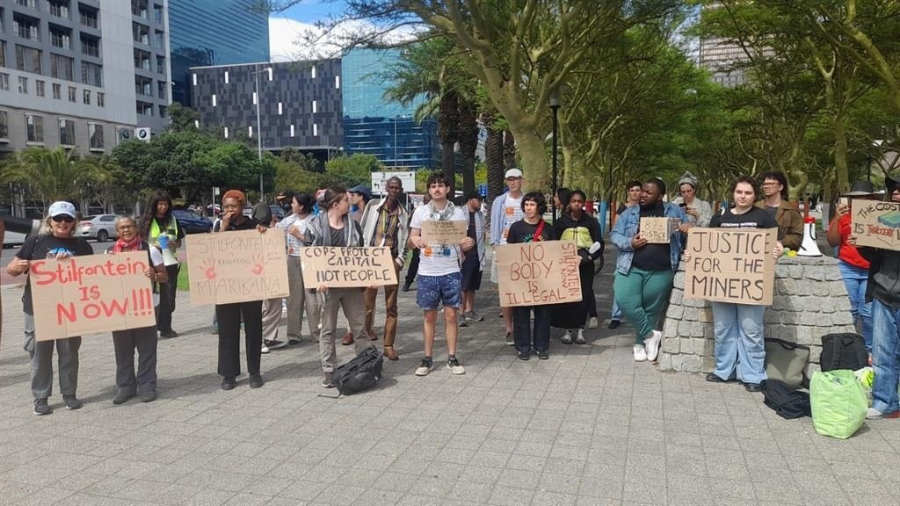
Two weeks ago, outside the Cape Town International Convention Centre, Catholic lay leaders gathered in solidarity with Stilfontein’s illegal miners. Their protest was a response to the shocking discovery of 78 miners’ bodies, a grim reminder of the hidden suffering endured by those forced into dangerous underground work.
At the heart of the demonstration were members of the Laudato Si’ Movement South Africa Chapter—Jane Overmeyer, Arlette Marais, Blanche Meyer, and Bernadette Crewe-Brown—standing together for social justice and human dignity.
The Human Toll of Mining
Mining in South Africa has long been a double-edged sword—providing economic opportunity while inflicting immense suffering. Many illegal miners are victims of human trafficking or extreme poverty, left with no choice but to risk their lives for meager wages. As one protester reflected:
“A lot of people are brought to the mines through human trafficking. Many are indigent and lack opportunities. Their situation forces them into these choices.”
Once underground, miners often remain trapped for months, fearing arrest or violence. Reports suggest that authorities have even blocked attempts to provide food and water to those stuck below, further deepening their dehumanization.

Caption: 90-year-old Blanche Meyer sharing her personal story
Personal Stories
For Blanche Meyer and Bernadette Crewe-Brown, the fight for miners’ rights is deeply personal. Blanche, now 90, carries the memory of her grandfather, who died in the mines in 1942. She recalls growing up with stories of his sacrifice and the dangers he faced daily underground.
Bernadette’s grandfather suffered a similar fate, succumbing to lung disease at just 49 in 1935, his health destroyed by years of inhaling toxic dust.
At the protest, Blanche shared her memories with young Catholic lay leaders, her voice steady but full of emotion. The weight of history was palpable as she spoke of the long-standing injustice faced by miners. Bernadette emphasized the importance of remembering these stories—not just as history, but as a call to action.
“This is not just about the past; it’s about ensuring a better future,” she said.
Walking the Talk
The lay leaders are united in the South Africa chapter of Laudato Si’ Movement, which inspires and mobilizes Catholics for ecological justice. And this is just one of the many ways the Laudato Si’ Movement supports each person from their own trenches in creating a fairer world with better opportunities.
Each of us has a role to play in creating change. Do you have a personal story that connects with the mission of the Laudato Si’ Movement? We want to hear from you. Share your experience and help us build a powerful narrative of faith in action.
📩 Send your stories to [email protected].






